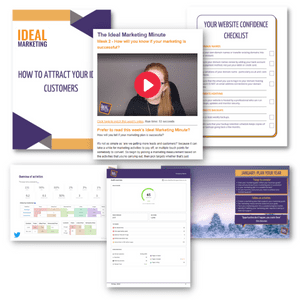Blogging is brilliant for your business. Once your website is set up, it’s a free and effective way to engage your customers with offers, news, tips, opinions and more. Not only that, regularly adding relevant, good quality content to your website in the form of blogs is an easy way to maintain and even improve those all-important search engine rankings. However all too often blogging goes the way of sorting out your paperwork or clearing up your email inbox – something you put on your to-do list but never quite get round to.
With that in mind, here are some easy and achievable ways to get into the blogging habit.
1 Find great content
If you’re sitting at your desk wondering what to blog about, you’re approaching it the wrong way. Launching a new business or running a busy established one means there is always something to blog about. Whether it’s a product launch, new staff member, special offer, recognition in the media, an award or a new premises, there will usually be something interesting you’re up to that you can tell people about.
Having a quiet month? That’s the time to take a look at the bigger picture. Why not use your knowledge of your field to comment on industry news? Alternatively, blogging is a great way to foster client loyalty by giving people the benefit of your expertise in the form of useful tips or information. For example if you run a restaurant, why not publish an easy-to-make-at-home version of last month’s bestselling dish? If you’re a solicitor specialising in probate you could write an easy-to-follow guide about the process of writing a will.
2 Real world SEO
At the Ideal Marketing Company, we provide SEO blog plans for many of our clients. These plans are formulated by researching competitor activity and identifying what people are typing into search engines like Google when they are looking for the service you provide.
When thinking about SEO it’s important to remember that Google deliberately keep its search algorithm secret and ever-evolving. This means that what worked in the past from a ranking point of view may not be appropriate now. The upshot of this is that people are now rarely seeing success from keyword-stuffed content designed for no other reason than to move a page up the search engine rankings. This is a good thing because in the past, spammy content of this kind was often created to the detriment of the useful information that people expect to find when they click on a page.
Also, it’s important to remember that while keyword research is important, it’s vital to achieve the correct balance between using words and phrases that will get the right people clicking on your page and providing good quality content that flows naturally and hasn’t been artificially stuffed with keywords. In short, once people land on your page, they should always find what they’re looking for rather than feeling hoodwinked by clickbait.
3 One thing leads to another
You probably already communicate with your customers in a variety of different ways. So instead of seeing blogging as an extra chore to add to the never-ending to-do list, why not look at what you’re already doing in order to generate blog content? Or equally, why not use your blog content to generate even more communications for your clients. For example:
- Linking to your latest blog post on your Facebook page or Twitter feed is a quick and easy way to generate social media content and get more engagement for your blog posts.
- If you’re already in the habit of creating press releases about big news within your business, it’s usually quick and easy to adapt these into blogs.
- Communicating with your customers by direct mail about a special offer? That’s a blog right there!
4 Be realistic about length
At the moment, the accepted wisdom is that when it comes to blog posts, it’s a case of the longer the better. While it’s true that regularly writing blog content with a word count into the thousands can be valuable from an SEO point of view, it’s not always achievable or appropriate for the subject matter. If you’ve got a meaty subject and the time to write about it in great depth, that’s fantastic. However if you don’t, that doesn’t mean that blogging isn’t worthwhile. As a general rule, 500 words is a good word count to have in mind as a minimum. The time it takes to write this will depend on the complexity of your subject matter, but this is usually an achievable length for you to write and for your readers to find enough information to engage with and read to the end. Also, even if 500 words seems like a lot as you get started, once you get going, you may surprise yourself by how much you actually end up writing.
5 Get the basics right
As mentioned above, many businesses see the undeniable value of investing in SEO blogs as part of their marketing strategy. However, if using the services of a technical SEO specialist or professional copywriter isn’t an option for you, it’s important to get the essentials right, including the following:
- Make sure your spelling and grammar are correct as nothing says ‘unprofessional’ like a glaring typo. Don’t rely on your computer’s spellcheck – get someone else to proofread your work or consider using a free online tool like Grammarly.
- Think about the words your prospective customers will be using to search for your service online and use those as the basis of your keywords. If you are a small business think about using long tail keywords. These longer, more niche keyphrases may not be searched for as often but this will be offset by the fact that if you are an independent ladies’ shoe shop, it will be impossible to compete against the big retailers with the keyphrase ‘ladies shoes’.
- Remember SEO isn’t just about keywords – writing a meta description for your post and adding an alt text description to photos for visually impaired users will score you brownie points with Google.
- Starting your post with an H1 heading and breaking up the paragraphs with H2 headings serves the double purpose of pleasing the Google algorithm while also signposting your reader through the text.
SEO help from the experts
To find out more about the marketing services we offer to help business grow and thrive including bespoke SEO support, please call 01858 374 170 or email info@idealmarketingcompany.com.

Louise is an experienced and versatile copywriter whose passion is bringing any subject to life through the written word. She thrives on using her imaginative approach to identify and implement exciting PR opportunities for clients. A career spent coming up with creative content for tight deadlines in consumer magazine journalism and PR means Louise doesn’t know the meaning of the term ‘writer’s block!’







